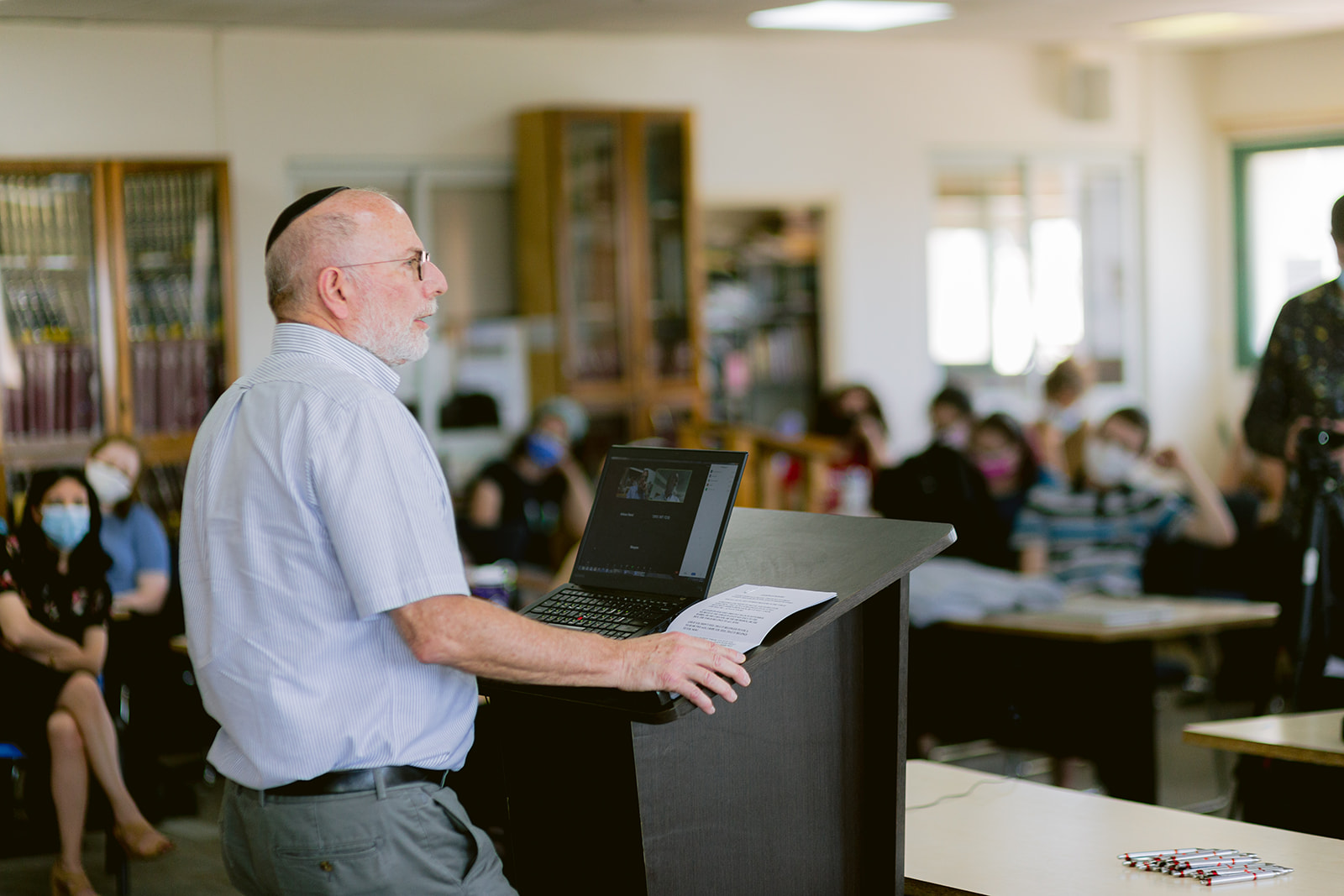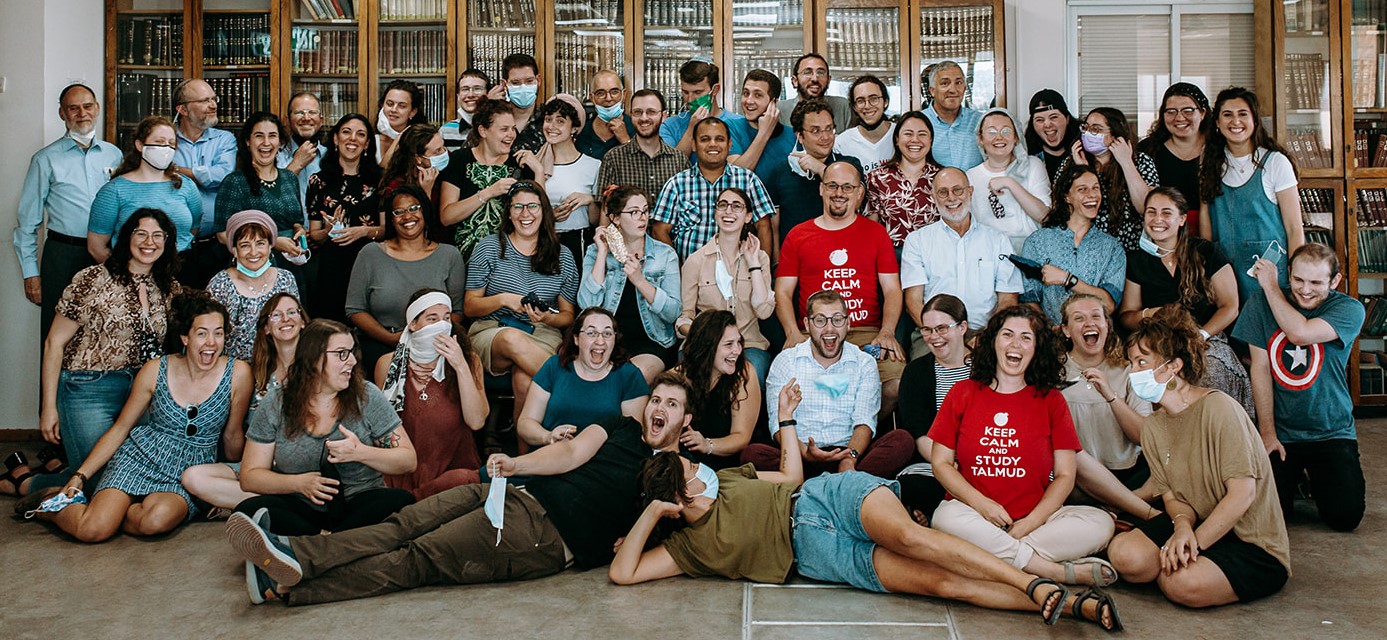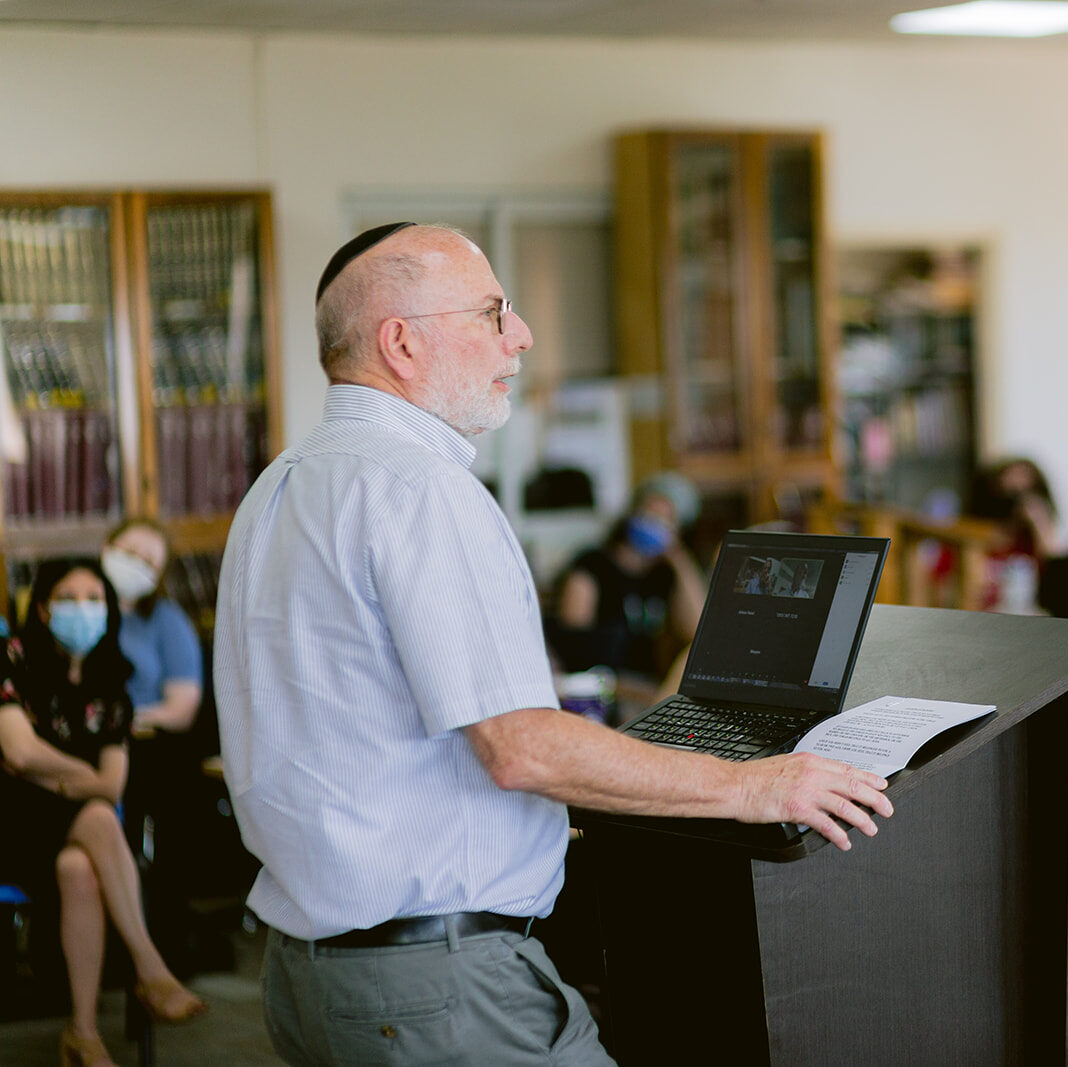The following inspirational words by Pardes Dean, Dr. David I. Bernstein, were delivered to Year Program students on the final day of classes, May 27, 2021.
As I said on our very first day back in September: we believe the Torah is given not only to the rabbis, or to Kohanim, or to the Orthodox, or to men. The Torah belongs to all Jews! And if you didn’t feel that it belonged to you a year or two ago, I hope you feel that it belongs to you now.
Each of you was “koneh torah,” each of you acquired the Torah this year, often with sweat, much patience, and even tears – but if there was ever any doubt, you now certainly know it belongs to you.
It’s not too long ago that most of us sat together at the very end of August, outdoors on the Tayelet. We didn’t know each other. We struggled through quarantines, through lockdowns. We met outdoors, and sometimes it was very hot, or very cold, or even rained. We met indoors in small groups in the largest rooms we have. We sat two meters apart and wore masks. We washed our hands for at least 20 seconds, with soap. And we washed them again and again and again. We “alco-geled” (Purelled) our hands after touching a doorknob!
Living behind masks and social distance, and hardly ever being able to come together as a community, it has taken us a long time to get to know each other. But from the beginning, we have told you that we were focused on two major priorities in deciding to open our Bet Midrash during Corona: First, to keep us all healthy; and second, to learn as much Torah as we possibly could. We knew these two goals would, at times, come into conflict.
I am happy to say today, on the last day of this tumultuous academic year, 5781/ 2020-2021, that we have achieved both of those two goals. While some Torah institutions did not open, fearing the challenges (many!) of this year, Pardes decided early on that we would not forfeit our mission. Of those Torah institutions that did open up, so many of them saw their student body, and often their teachers, becoming sick with the Coronavirus. Today, on our last day of learning, let me say that – with your tremendous cooperation and with God’s help, we have achieved both our two goals. Not one Pardes student, faculty member, or staff member contracted Coronavirus. And, Torah learning, sometimes on Zoom, sometimes outdoors, but most often in-person, continued uninterrupted!
I want to also acknowledge how painful and difficult the last month has been for us all. These are days that are not just challenging for us within the Pardes community. They have been difficult far beyond our Bet Midrash, in this city and in this region, and in Jewish communities around the globe. I am sorry that our community was tested so harshly during this Coronavirus year when our fuses were already so short, when it was so hard to develop strong relationships, and impossible to do the kind of tiyulim and Israel education we would have liked.
This is not the first year of Pardes, and you are not our first alumni. We are completing the 48th year of Pardes, and you join thousands of alumni living mostly in North America, but also in the U.K., France, Serbia, Germany, Poland, Russia, Ukraine, Israel, Singapore, India, and Australia, and probably more. They are quite a remarkable group: many are Jewish professionals, rabbis in all the movements, teachers, heads of Jewish studies, and heads of Jewish day schools, Hillel professionals, and professors of Jewish studies. Many are lay leaders in their respective Jewish communities, advocating for serious Torah learning. So many of them are marked by that very unusual combination of a knowledgeable and passionate Judaism on the one hand, while on the other hand being accepting of other brands of Jewish life.
48 years ago, a non-denominational Jewish learning center was a unique thing. There was no other Bet Midrash that was open to women. Few spoke about intensive Jewish learning for those who would not become rabbis. This small, inadequate facility – and earlier Pardes facilities, which were even smaller and more inadequate! – was at the forefront of many of the most exciting developments in the Jewish world today.
Today, a crazy disproportionate number of the young (and already not so young!) leaders in the Jewish world are Pardes graduates. Our alumni have spread the Pardes message by being among the leadership of the Limmud conferences in their place of birth, England, and among the small Jewish community in Poland. They have been the founders of independent minyanim and institutes of intensive Jewish learning in North America. They are active in Israel in developing clean technologies, and in many social justice causes. Today you join their ranks.
The Jewish world needs you, whether you are going to be a rabbi or a teacher; or a lawyer who is going to help run an independent minyan or a businesswoman who is going to bring serious adult education to her shul.
For the majority of Jews living outside of Israel, Hebrew is incomprehensible. The majority of Jews in the world have never learned Rashi or the Ramban. Many do not know the joys of Shabbat and our chagim – many think Judaism is all about fasting and suffering, and of course, remembering the Holocaust. Most have never sat in a Sukkah or participated in a Purim Seudah.
The Jewish people is probably the most highly educated religious group in the world, with the highest percentage of university degrees, yet the majority of Jews are relatively illiterate about their own heritage, their own tradition. This is one of the greatest tragedies for the Jewish people in the modern age.
Yet there is a thirst today among so many young Jews to learn more about Torah and Jewish life. You are in an incredibly powerful position – yes, you in the intro level, and you who is returning to your former job in the secular world – to share the Pardes message.
Some of you may remember what I said on the first day of school in September: next year, you will find yourself in a situation where you will be the most educated Jew in the room. It could be at work, it could be among friends, it could be at a Shabbat table or at a Pesach Seder.
Now — it’s your turn! The treasure of Torah belongs to you! It always did, but now you certainly know it and feel it.
I want to share with you another message. Just so there is no misunderstanding, I want to offer a preface: I am speaking to myself as much as to anyone in the room.
I read a Dvar Torah entitled “Sancity and Sanctimony” by Rabbi Tzvi Hirsch Weinreb last week in which he wrote about the Nazir. The Torah states that the Nazir, who vows to abstain from wine amongst other things, is called “kadosh/holy,” on the one hand; yet the Nazir must bring a korban chatat (a sin offering) when he finishes his period of asceticism. The commentators debate whether this is because he is coming down from a higher level of sanctity, or perhaps to atone for his asceticism, that is, removing himself from permitted pleasures in the world, was in itself a sin.
Perhaps there is yet another reason for his korban chatat (sin offering). Perhaps the sin was not abstaining from permitted pleasures, and perhaps it was not for returning to a normal way of life. Instead, perhaps the sin was the sanctimony of the Nazir, his feeling of self-righteousness that he was somehow on a higher level than others by taking on these self-denying vows. Self-righteousness is an easy trap in which we can all fall, and I want to outline 3 areas that are ripe for sanctimony. (Again, I am speaking to myself as much as to anyone here.)
First, we can fall into the trap of sanctimony as a result of our religious behavior – looking down on others who perform fewer rituals than us, or looking down on people whom we think are not spiritually engaged, or looking down on people who just do things differently than we do. We must be careful of this trap, particularly if you are returning home.
Second, we can fall into the trap of self-righteousness about our Torah learning. I am certain that all of us know more than we did when we arrived in this Bet Midrash, both in knowledge and in skills. We should be proud of our accomplishments. But we cannot lord it over other people. When we are the most knowledgeable Jew in the room, we need to find ways to share our knowledge in ways that are not condescending, or offensive. We read “All of its ways are ways of pleasantness.” (Proverbs 3:17)
Last but not least: We can be trapped in the self-righteousness in our politics. Professor Jonathan Haighdt’s book is titled The Righteous Mind. As was so beautifully explained a few days ago by Sefi Kraut, it is easy to cast those who oppose our politics as “evil,” which of course means that we must be “righteous.” While I don’t deny that there is evil in this world – there certainly is! – most people who support “the other side” are usually not evil; they simply have values that we share, but they prioritize them differently.
Our tradition values anava and tzniut, modesty and humility. It is how the Torah describes Moshe, as the most modest of people. It is the way we end our silent Amida, with Elokai Netzor (“Guard my tongue from evil…”). Modesty and humility are character traits that are important in our tradition. Yet, they are out of style in the world of today. They are in short supply in the post-modern world, and especially in political discourse.
There is much I don’t know. I don’t know about the experience of the other. I am not in their shoes.
We don’t have to agree. We can and should have strong beliefs. But our disagreements should not be tainted by sanctimony and self-righteousness, as much as possible.
I hope that lesson was driven home by the Machloket Matters program held just a couple of days ago. For those not staying on next year, go back and do great things! Find other like-minded people – better yet, some people with whom you disagree – and work with them to build more Jewish life based on learning, passion, and openness. (We will even provide microgrants via Pardes North America to help you.)
You have already enriched each other. You have enriched this place. Now go share what you have — with humility — with the rest of the Jewish world.



